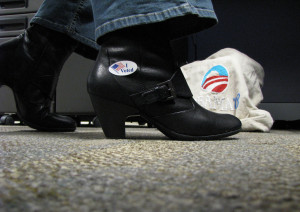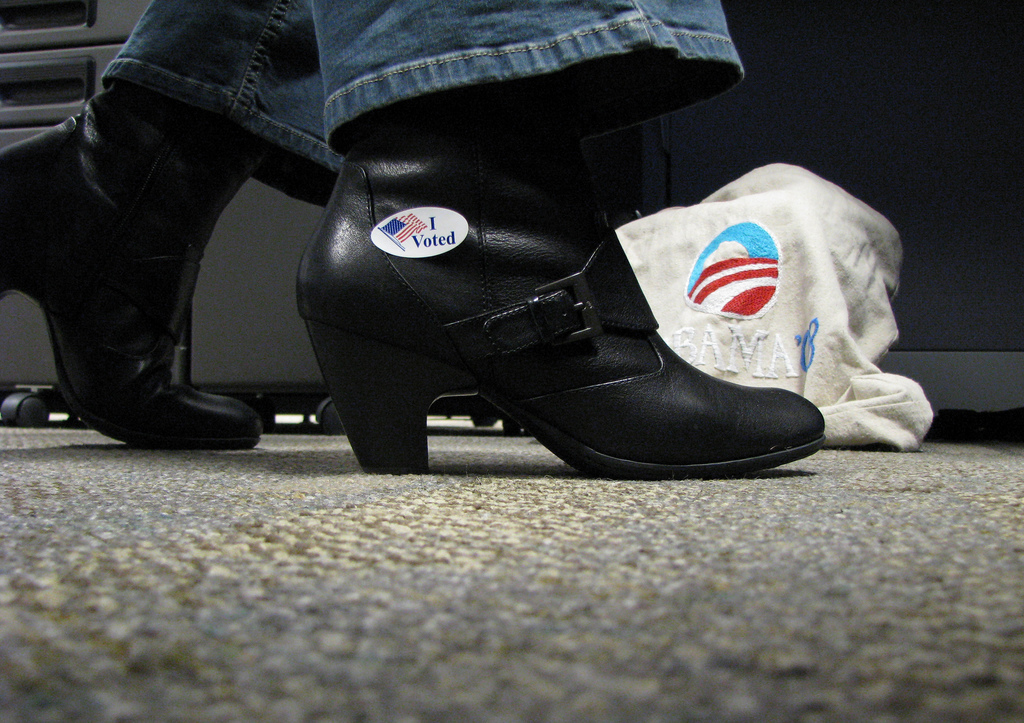>> I’m not much of a conspiracy theorist. I believe Buzz Aldrin landed on the moon. I don’t think there were UFOs in Roswell. I even believe that Lee Harvey Oswald assassinated JFK.
I’m not much of a conspiracy theorist. I believe Buzz Aldrin landed on the moon. I don’t think there were UFOs in Roswell. I even believe that Lee Harvey Oswald assassinated JFK.
But this legislative session has me looking at legislation under a magnifying glass and reading between the lines. Who stands to gain? Who will lose? And the changes being considered to North Carolina’s primaries are no different.
Here’s the quick backstory. Back in 2013, the General Assembly moved North Carolina’s presidential primary to February – an effort to make our state more influential in the candidate selection process and to gain more attention from candidates.
But the Republican National Committee decided to enforce more order on the primary process and promised to strip delegates from states holding unapproved February primaries.
That threat left North Carolina Republicans searching for a new date and yielded legislation to move the primary date to March 15th. Under the RNC rules, that timing would still make North Carolina an influential GOP primary state and would, in fact, make the state even more important by converting the primary to >>“winner take all.”
All of that makes sense, but then the story takes a little turn. State primaries – for Senate, Congress, the Governor and others – are scheduled for May. But North Carolina hasn’t held a separate presidential primary since 1988, and separate primaries cost counties – and taxpayers – millions.
The latest news is that legislators are considering holding >>a single primary on March 15 th . And that has me hearing the buzzing of black helicopters. Who stands to lose in that early, single primary?
- Senate candidates. A number of Democrats are still mulling a challenge to U.S. Senator Richard Burr. A shift to an earlier primary would force those candidates to speed up their decision-making and fundraising pretty dramatically. Candidate filing is currently scheduled to begin February 8 th , so that would clearly have to move up.
- Challengers. The shortened primary timeframe would make fundraising and organizing more difficult for candidates, but especially for challengers, who don’t have the name recognition, campaign structure or fundraising apparatus of incumbents. The noise of a presidential primary filling up the airwaves and the newspapers will make it even more difficult for these challengers to get their messages through to voters.
- Voters. North Carolina’s new voter ID rules go into effect in 2016. The earlier primary would give voters less time to understand the new rules. And for those without driver’s licenses, the shortened timeframe will give them less time to gather the proper documentation, possibly leaving them disenfranchised.
Maybe our legislators’ motives are completely honorable in this case, but the serious consequences of a primary move warrant consideration. Public debate and consideration on this issue would be worthwhile, but it is likely to be settled in a back room with just a small group of legislators.
I’ll put the conspiracy theories aside, but as the session comes to a close, pay attention to the decisions being made and the motivations behind them.

There are no comments
Add yours